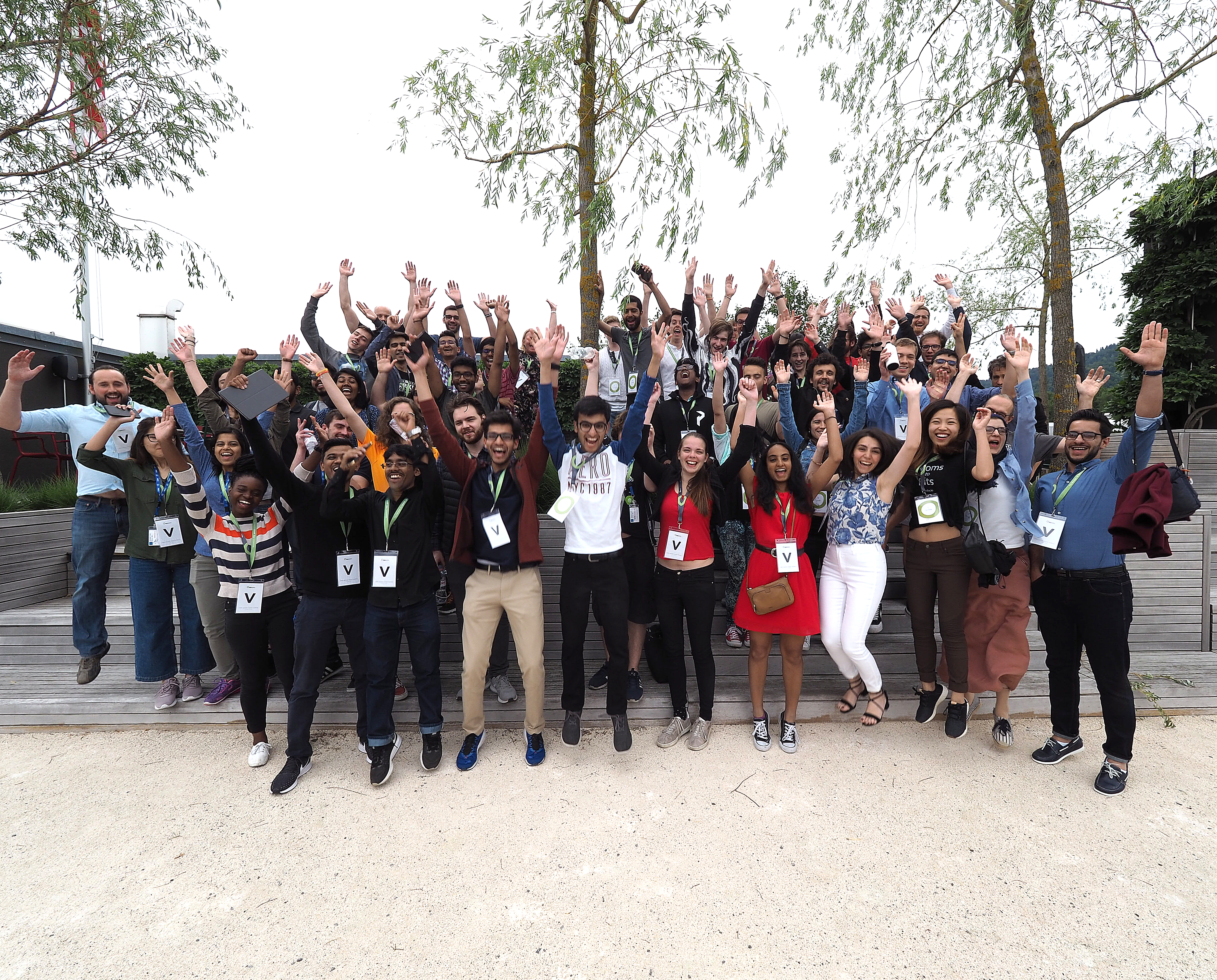Second CERN openlab summer student lightning talk session
On Tuesday 13 August and Thursday 15 August, the 2019 CERN openlab summer students will present their work at a dedicated public Lighting Talk sessions.
In a 5-minute presentation, each student will introduce the audience to their project, explain the technical challenges they have faced and describe the results of what they have been working on for the past few weeks.
It will be a great opportunity for the students to showcase the progress they have made so far and for the audience to be informed about various information-technology projects, the solutions that the students have come up with and the potential future challenges they have identified.

-
-
14:00
→
14:05
Welcome and introduction 5m
-
14:05
→
14:12
Evaluation of Erasure Coding & other features of Hadoop 3 7m
Apache Hadoop is a set of 2 domains: data computation such as Spark, MapReduce, Flink, etc and data storage - HDFS. HDFS is a distributed file system. Current HDFS provides 3x replication for data redundancy and availability. But it has 200% storage overhead. However there is a big improvement in Hadoop 3 for replication which is Erasure Coding (EC).
Erasure Coding gives the same level of fault tolerance as 3x replication but with much less storage space.
My project aims to evaluate the performance of Erasure Coding.Speaker: Nazerke Seidan -
14:12
→
14:19
Automate Cloud Infrastructure deployment for Oracle Cloud and Openstack 7mSpeaker: Priyanshu Khandelwal
-
14:19
→
14:26
Neuromorphic Computing in High Energy Physics 7m
Spiking neural networks are an interesting candidate for signal processing at the High-Luminosity LHC, the next stage of the LHC upgrade. For HL-LHC, new particle detectors will be built, what will allow to take a time-sequence of snapshots for a given collision. This additional information will allow to separate the signal belonging to the interesting collision from those generated parasitic collisions occurring at the same time (in-time pileup) or before/after the interesting one (out-of-time pileup). By powering the LHC real-time processing with spiking neural networks, one could be able to apply advance and accurate signal-to-noise discrimination algorithms in real time, without affecting the overall system latency beyond the given tolerance.
This project is investigating the potential of Spiking neural networks deployed on neuromorphic chips as a technological solution to increase the precision of the upgraded CMS detector for HL-LHC. We propose to focus on the characterization of a particle type (classification) based on the recorded time profile of the signal, and to determine the arrival time of the particle on the detector (regression). These informations can be used to determine if a particle belongs to the interesting collision or to one of the parasitic collisions.
Speaker: Bartlomiej Pawel Borzyszkowski -
14:26
→
14:33
Evaluate ElastAlert for IT-DB use cases 7mSpeaker: Dimitra Chatzichrysou
-
14:33
→
14:40
Explorations in heterogeneous computing 7m
Exploring the use of cupla to write accelerator-independent code.
Speaker: Davide Marcato -
14:40
→
14:47
Chaos Monkey 7m
Chaos Monkey
Speaker: Elizaveta Svitanko - 14:47 → 14:54
-
14:54
→
15:01
Portable Early Prediction of Sepsis from Clinical Data on Intel Myriad X 7mSpeaker: Priyanka Kumar Mathur
-
15:01
→
15:08
FaaS on Kubernetes with Knative 7m
Knative is a relatively new technology that extends the Kubernetes API to support deployment of server-less apps. On the CERN cloud team, we are investigating Knative as a candidate technology for offering Function-as-a-Service (FaaS) infrastructure to CERN cloud users.
Speaker: Juan Carlos Gallegos Dupuis -
15:08
→
15:15
Machine Learning and Kubernetes 7m
Fedor Kitashov
Speaker: Fedor Kitashov -
15:15
→
15:35
Break 20m
-
15:35
→
15:42
Anomaly Detection in the Elasticsearch Service 7mSpeaker: Jennifer Rosina Andersson
-
15:42
→
15:49
Performance Study of Parquet Codecs 7m
Performance Study of Parquet Codecs
Speaker: Javier Garcia Rubio -
15:49
→
15:56
Performance monitoring using intel performance counters for HEP applications 7mSpeaker: Khadidja Hadj Henni
-
15:56
→
16:03
Graph Neural Network(GNN) Inference of FPGA 7mSpeaker: Kazi Ahmed Asif Fuad
-
16:03
→
16:10
Modeling HEP Workloads under Multidimensional Restrictions 7mSpeaker: Riccardo Maganza
- 16:10 → 16:17
-
16:17
→
16:24
support JS rendering websites in The CERN Search Crawler 7m
support JS rendering websites in The CERN Search Crawler
Speaker: Khanssa El Amrouni (Openlab Summer Student) -
16:24
→
16:31
Benchmarking and optimising large scale parallel workflows 7mSpeaker: Mr Jesus Perales Hernandez
-
16:31
→
16:38
Building effective Restful APIs with Oracle Rest Data Services (ORDS) 19 7mSpeaker: Iheb Eddine Imad
-
16:38
→
16:45
Big data analysis and machine learning in the cloud 7mSpeaker: Mr Michal Bien
-
16:45
→
16:52
Accelerating TMVA Deep Learning - Integration of the NVIDIA cuDNN Library 7mSpeaker: Joana Niermann
-
16:52
→
17:22
Deliberations of the Jury 30m
-
17:22
→
18:52
Farewell and best lightning talk drink openlab summer students 1h 30m
-
14:00
→
14:05